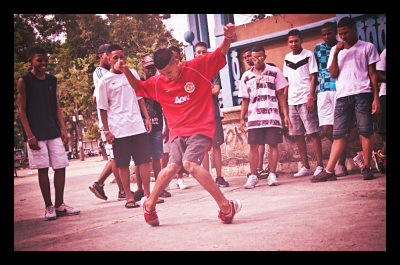Dancing is Decreasing Crime in Slums

Passinho, a small step dance, is gaining incredible momentum in Brazil, specifically coming out of the outlying peripheries (slums) of Rio de Janeiro. The dance caught fire when it gained media attention through YouTube and news spotlights highlighting the Passinho dance craze. Passinho has been around for more than eight years, but it just recently entered mainstream and can be seen on many ads and television commercials. The dance has grown so big that a number of major competitions are held throughout Brazil hosting hundreds of youths passionate about Passinho. The dance is a mixture of break-dancing, funk, pop, and traditional dances like the samba, pagode, and frevo. Many young people perform Passinho barefoot.
Rio de Janeiro is home to approximately 11.7 million people. The city is largely made up of poor shanty settlements. Rio de Janeiro faced a rapid push in urbanization, resulting in a major influx in migration, which ultimately led to a shortage in housing. The housing shortage has forced people to construct their own homes out of scrap materials, which are temporary places of living commonly known as favelas. The housing conditions in the favelas are extremely poor, with families often sharing only one tap, and forced to live without proper sewage maintenance.
The shanty settlements of Rio de Janeiro have been home to large amounts of violence, crime, and drug use. Before Passinho became widely popular, youths would engage in drug trafficking and violence to get them through the day. Now that Passinho has taken center stage in Rio, youths have a healthy and fun alternative to the crime that once ruled the poor areas of Rio de Janeiro. Instead of getting involved in drug trafficking, youths are getting involved in the Passinho dance scene, which is broadcasted through YouTube and Facebook for fans all over the world to see.
The extensive popularity of Passinho is inspiring young people all over the world. It is showing the world that there are fun alternatives to crime that young people actually want to engage in, despite their poor living conditions. Passinho goes beyond the dance floor, bringing positive light into the lives of young people living in the favelas of Brazil.
– Chante Owens
Sources: Internet Geography, NPR, Black Women of Brazil
Photo: UOL Entertainment
